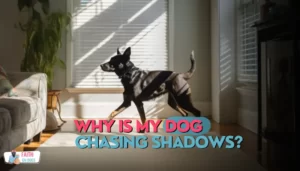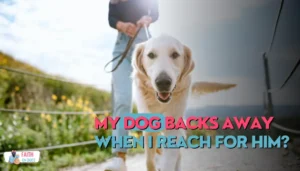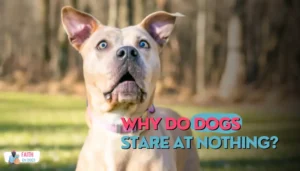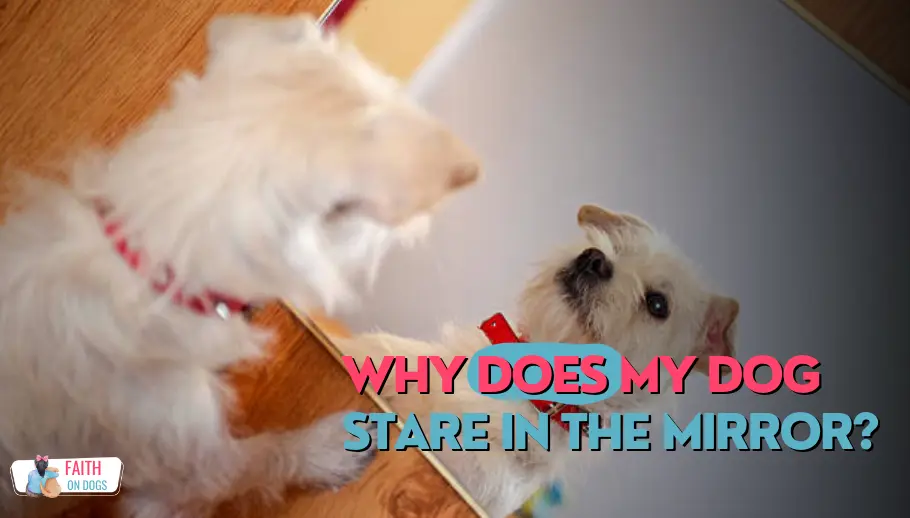
Ladies and Gentlemen, gather around! For today’s topic of discussion, we will dive into the mystery of the canine mind and respond to the old-time question – Why Does My Dog Stare In The Mirror?
According to a recent survey, 87% of dog owners have caught their hairy friend staring intently at their reflection, leaving us to wonder, what is really going on in that cute little noggin of theirs?
Is it a case of pure vanity, or are they contemplating their existence? Are they searching for their long-lost twin, or maybe, just maybe, they’re trying to figure out why their owners keep putting them in those silly outfits?
Let’s face it. Dogs are our friends. However, they’re likewise master entertainers, always leaving us in stitches with their eccentric and hilarious antics. So, sit back, grab a bowl of popcorn, and get ready to laugh as we try to uncover the mystery of the dog’s staring contest with the mirror.
Here Are Reasons Why Dogs Stare In The Mirror
1. Curiosity
Dogs curious creatures by nature, and this extends to their behavior in front of mirrors. For lots of dogs, a mirror can be a strange and fascinating item, with some dogs spending long periods of time staring intently at their very own reflection.
While some dogs may simply be interested in the novelty of the image, there is also some evidence to suggest that dogs are capable of recognizing themselves in the mirror.
Recent studies have shown that dogs have a level of self-awareness and that they recognize their own reflection as an image of themselves. In a study released in the journal Animal Cognition, researchers found that dogs were more likely to sniff and bark at their own reflection in a mirror when compared to other objects. This suggests that dogs are not just staring at the mirror out of curiosity yet they are additionally aware of their own presence and identity.
According to a report by the American Kennel Club, around 75% of dogs show some level of curiosity or interest when they first come across a mirror. While some dogs might just smell and leave, others may bark, growl, or even attempt to play with their reflection.
These behaviors can differ significantly depending on the specific dog, their personality, and their experiences with mirrors.
2. Social Behavior
Dogs have a one-of-a-kind ability to interact with and understand their owners, and also this is evident in their social behavior. One interesting aspect of their behavior is their reaction to mirrors. When dogs come across a mirror, they commonly stare at their own reflection, leaving several pet owners wondering what they believe.
Studies have shown that dogs have the ability to identify their own reflection in a mirror, but the reason behind their stare is still a subject of debate. Some experts believe that dogs look at their reflections due to the fact that they are trying to recognize what they are seeing.
Dogs have a strong social instinct, and their reflection in the mirror might confuse them since it appears like one more dog, but it does not scent or act like one. This confusion may trigger them to stare, trying to understand what they are seeing.
3. Identity Confusion
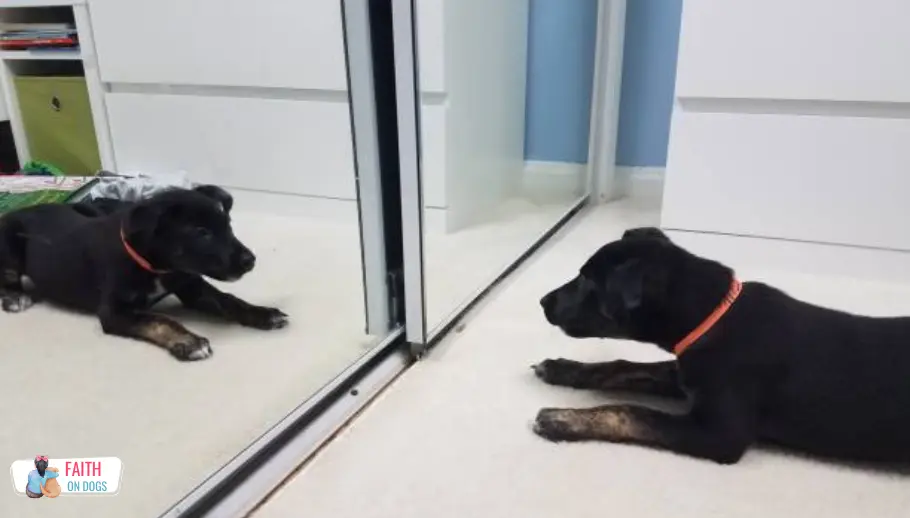
Dogs have been observed staring at themselves in the mirror, leading to the suggestion that they are experiencing identity confusion. This phenomenon is believed to be linked to dogs’ cognitive abilities and self-awareness, with some experts recommending that dogs have the ability to acknowledge their very own reflection but are confused about the image in front of them.
For many dogs, the experience of seeing their reflection in the mirror can be complicated and also distressing. Some dogs may bark or growl at the reflection, while others might smell or paw at the glass.
This behavior can be particularly obvious in dogs who have never encountered a mirror before, as they are unable to recognize the image as their own.
As an example, a dog owner might see their dog barking and growling at their reflection in a bathroom mirror. The dog might not recognize that it the simply a reflection of itself, leading to confusion and fear.
4. Source Of Entertainment
Just as we watch TV to be entertained, dogs seem to be fascinated by the image they see in the mirror. It’s practically as if they’re trying to make sense of what they’re seeing, or possibly they’re simply enjoying their very own image.
Some dogs even seem to identify themselves in the mirror and also will certainly bark or wag their tail as if they’re trying to interact with their own reflection. This sort of behavior is not just enjoyable to watch, but it can likewise be an indicator of a dog’s level of self-awareness as well as intelligence.
What To Do When Your Dog Stares In The Mirror?
1. Observe: Observe your dog’s behavior and body language when they are staring in the mirror. This can give you an idea of what they are feeling or trying to communicate.
2. Don’t Interrupt: Avoid interrupting your dog when they are staring in the mirror. Let them have their moment and explore.
3. Redirect: If your dog seems to be getting overly fixated on their reflection, try redirecting their attention to something else, like a toy or treat.
4. Avoid Punishing: Do not punish your dog for looking in the mirror. It is an all-natural behavior, and punishing them may cause confusion or anxiety.
5. Motivate Favorable Reinforcement: When your dog interacts with their reflection, reward them with positive reinforcement such as treats, pets, and praise.
6. Give Stimulation: Ensure your dog has sufficient physical and mental stimulation to stop boredom and encourage healthy and balanced behavior.
7. Offer Distractions: If your dog continues to look in the mirror, try placing a distraction, like a treat or toy, in front of the mirror to encourage them to look away.
8. Talk to a Professional: If you are concerned regarding your dog’s behavior towards mirrors, consult with a professional dog trainer or veterinarian for guidance.
Frequently Asked Questions
1. Is It Ok For Dogs To Look In The Mirror?
Yes, it is okay for dogs to look in the mirror. Actually, some dogs might discover it intriguing or amusing to take a look at their reflection. However, it is necessary to monitor their behavior as well as ensure they do not become extremely focused on their reflection, as this might show an underlying issue such as anxiety or boredom.
2. Can Dogs See Their Own Reflection In The Mirror?
Yes, dogs can see their own reflection in the mirror. While dogs are able to acknowledge themselves in the mirror, their understanding of the reflection is really strong as well different from ours.
Dogs do not have the exact same cognitive ability to recognize the concept of self-image and may view their reflection as a different individual.
Final Thoughts
I hope this article on why dogs stare in the mirror helps you know why dogs do this behavior. It’s absolutely normal behavior for them, just like we like to look in the mirror for hours. I think female dogs are more prone to do this. Ha! Ha! Apart from jokes, if you have a doubt about this article, you can contact us to add more points or remove some points.
You should share this article on your whats app group or Facebook; it will help people to know more about their furry friends, and as well it will help us to reach out to a maximum number of people. Thanks for reading this article. You can also check our other articles as well to explore dogs staring behavior.
Here Are Some More Articles On Dogs Staring Behavior:
1. Why Does My Dog Stare Into Space?
2. Why Do Dogs Stare Out The Window?
3. Why Does My Dog Stare At The Floor?
4. Why Do Dogs Stare At Nothing?
5. Why Does My Dog Stare At Me When He Eats?

